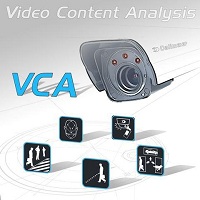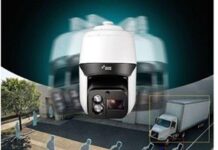
In the age of Artificial Intelligence, IP cameras are evolving from purely imaging appliances into smart modules in the context of a video surveillance system. Dallmeier is following these developments by integrating VCA technology, also known as video content analysis, into the 5000 series of Dallmeier cameras, thereby enabling intelligent incident search in the recorded video streams.
All 5000 series Dallmeier cameras are equipped with VCA technology as standard, to allow intelligent incident searching in the recorded video stream. Filtering of the observation situation by the camera with the aid of the preset classifications enables real-time video analysis, with which incorrectly detected incidents can be minimised in advance and are not even transmitted for storage, while at the same time incidents that are relevant can be stored on the server together with the associated metadata. This functionality has the advantage in the next step that the user no longer has to spend long periods laboriously viewing huge volumes of archived material, but instead can find the incidents of interest more selectively and efficiently with the aid of the stored metadata. Valuable time is saved, and pertinent suspicious instances can be verified quickly and simply.
Unlike motion detection (simple detection of movement), with which this analysis is carried out on the appliance only after the fact, consuming much time on the part of the user, VCA performs the analysis beforehand and in real time, and classifies the objects it detects. The results of the analysis are transmitted continuously to the recording system together with the corresponding metadata as an incident report.
With VCA technology, five different analysis classifications can be assigned depending on the field of application: Intrusion Detection, Line-Crossing Detection, Object Classification, Face Detection and Tamper Detection. Besides the basic data, such as date, time and location of the incidents, further filters can be used so that a broad spectrum of information such as object class or duration of the incident can also be stored, and this in turn can contribute to a precisely targeted, efficient search and evaluation, e.g., distinguishing between and filtering object classes (such as vehicles or people).











